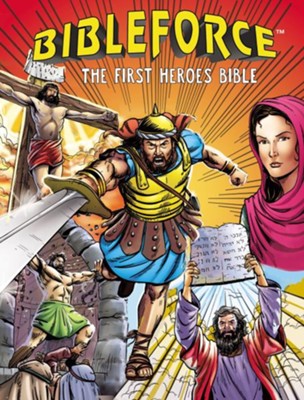_________________________________________________________________
Read Ruth 1:1-2. Here we are introduced the family of Elimelek and Naomi. They along with their two sons Mahlon and Kilion have decided to move from Bethlehem to Moab. If you were them do you think you would have made the decision to move there?
Before answering look at Deuteronomy 23:2-6 and Judges 3:12-14. Moab was Israel’s enemy, but there was famine in Bethlehem. Would you have gone to Moab, and if so how would you feel moving there?
Despite any reservations they may have had, Naomi and Elimelek’s family did move to Moab and with very devastating consequences.
Read Ruth 1:3-5.
Naomi is now a widow and both her sons have died. As a widow with no children to take care of her, Naomi would have faced a life of extreme poverty.
Read Ruth 1:6.
We see that despite the famine the Lord provided for His people back in Bethlehem. How do you think Naomi might be feeling about this news?
Read Ruth 1:7-22.
So, Naomi is preparing to go back to Bethlehem. Both her daughters-in-law, Ruth and Orpah weep for Naomi and say that they want to go with Naomi too (vs. 10). Which one do you think loves Naomi more?
We see that only one daughter-in-law, Ruth, actually goes with Naomi. Orpah ends up going back to her family but Ruth refuses too. Ruth shows her love for and commitment to Naomi through her action of staying with her. Not only this but Ruth shows her love for God. She says that the God of Israel will be her God. She is willing to leave Moab and give up all the gods in Moab in order to follow the one true God.
Love always requires more than words. Actions must back up those words. This is true with our love for God. Read John 14:21&23. What action do we need to take to show our love from Jesus?
Read Ruth 2.
Ruth goes to the field of Boaz, a relative of Naomi’s, to glean wheat from the field, so they would have food to eat. This provision was set up in Leviticus 23:22, which commands “When you reap the harvest of your land, moreover, you shall not reap to the very corners of your field nor gather the gleaning of your harvest; you are to leave them for the needy and the alien. I am the LORD your God.” Boaz was a worthy man, who trusted God. He understood this law and obeyed it. So, even though Naomi may be feeling like the Lord is against her, He is actually taking care of Naomi through this law and Boaz.
In Ruth 2 we are also introduced to a very important term in vs. 20, which is redeemer or kinsman redeemer. In those times a kinsman-redeemer was a male relative who had the responsibility to rescue another relative in need. This may require the redeemer to buy his relative out of slavery (Leviticus 25:48), to be an avenger of blood for a murdered relative (Numbers 35:19), to buy back family land (Leviticus 25:25), or to marry the childless widow of a relative to carry on the family name (Deuteronomy 25:5-10).
Read Ruth 3
In Ruth 3 we see Naomi’s hopes for Ruth. She believes that Boaz, as one of their kinsman redeemers, will be able to provide protection and security for their family by marrying Ruth. Naomi tells Ruth what to do so this might happen and Ruth in faith follows Naomi’s plan. Boaz is happy that Ruth has come to him for help. He agrees to act as her redeemer so long as another family member who is more closely related to Ruth does not want to redeem her instead.
Read Ruth 4
Boaz is able to redeem Ruth and they marry. God gives them a son, Obed. Obed becomes the father of Jesse, who is the father of David. If you look at the genealogy chart of Christ, you will see that these are Christ’s ancestors. Isn’t is amazing how God used a Moabite to bring about His plan of salvation?
Just as Ruth was rescued by her kinsman-redeemer, Boaz, Jesus acts as our kinsman-redeemer. We have a great need to be rescued from our sins but we cannot rescue ourselves, only Jesus can. Ephesians 1:7 says “In him we have redemption through his blood, the forgiveness of our trespasses, according to the riches of his grace.”
“Blessed be the LORD, who has not left [us] this day without a redeemer.” (Ruth 4:14).
--------------------------------------------------------------------------------------------------------------------------
Going Deeper
Boaz, as a Kinsman Redeemer is a picture of Christ. Just as Boaz took his Gentile bride Ruth, who he redeemed, one day Christ will take His Gentile bride, the church, who He has redeemed (Revelation 19:7-9). During Biblical times the bridegroom and the bride were separated until the wedding just as the church is separated from Christ now. During this time of separation, the bride was to remain faithful to the bridegroom. As we wait for Christ’s return, we too should strive to remain faithful to Christ. Take time to ask God to reveal areas in your life where you need to be more faithful.
Praise God in Song:








